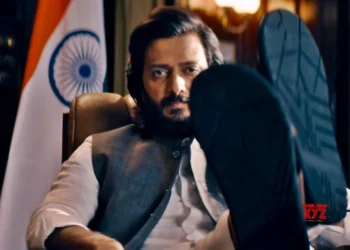As the rest of the world struggles to vaccinate adults in the face of a threat from a new coronavirus variant, China has embarked on an ambitious campaign that it says will give the country better protection against Covid-19: full inoculation of 160 million of its youngest citizens by the end of the year.
The campaign — powered in part with red flower stickers, balloons, and boxes of toys for children who step up to become what nurses call “little inoculated warriors”— has gotten off to a fast start. In the first two weeks of the effort, which began in late October, 84 million boys and girls between the ages of 3 and 11, about half of the eligible population, received the first of two shots, according to the most recent government data.
By contrast, in the United States, 2.6 million children between ages 5 and 11, or about 10 percent of the eligible population, received one dose over roughly the same time period. The push is part of Beijing’s unrelenting march toward herd immunity, the point at which enough people are immune to the virus that it cannot spread through the population.
With less than three months before the Winter Olympics in Beijing, Chinese officials are doubling down on that strategy. And with 1.1 billion adults already vaccinated, young people are seen as an important part of its success.
The campaign faces significant obstacles, including parental reluctance in a country with a checkered history of safety on children’s vaccines. The government insists that child inoculations are voluntary, but parents have described coming under pressure to get their children vaccinated. When You Xun declined to have his 3-year-old son vaccinated in the city of Ningde, the boy was suddenly sent home from school. “Urgent notice! Urgent notice!
Please, parents of all the babies who haven’t had the Covid vaccines, come to the kindergarten now to take your child home,” the message said.
Many parents rushed to have their sons and daughters inoculated, worried that they would not be allowed to attend school otherwise. You and his wife decided not to, fearing that the vaccine might not be safe for young people. After several days of silence from the kindergarten, he visited local authorities to complain about his son’s apparent expulsion. Officials told him that there was no rule forbidding unvaccinated children to attend class. So You took his son back to school the next day. “From top to the bottom, it is a disguised pressure campaign to enforce vaccination,” he said.
Though Chinese vaccines are generally considered safe, the country also has a history of administering spoiled shots and guarding any information
about negative incidents. In a 2018 scandal, possibly hundreds of thousands of children were injected with ineffective vaccines for diphtheria, tetanus, and whooping cough. And in 2013, 17 infants died after receiving a Chinese-made hepatitis B vaccine.
While that vaccine has been widely used since the authorities moved quickly to silence critics. Herd immunity is a goal most countries have abandoned — particularly with the emergence of new variants such as Omicron and Delta — but one that China has set as a prerequisite for reopening its borders.
“Their hope is that by increasing the vaccination rate, it will give them the confidence to open up in the future,” said Yanzhong Huang, director of the Center for Global Health Studies at Seton Hall University. Getting there will be difficult, in part because the country’s vaccines appear to be less effective than their Western competitors. By relying solely on its current vaccines, “China is unlikely to build this herd immunity,” he said. That has not stopped officials from working tirelessly to get vaccines into the arms of the country’s smallest citizens. Kindergarten teachers across the country have
sent out personal appeals urging parents to “hurry up” and get their students vaccinated.






















